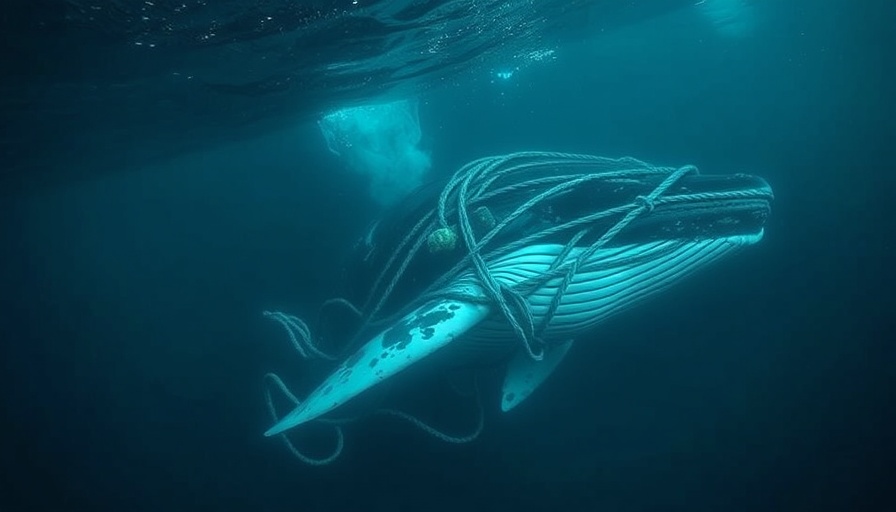
The Troubling Cuts: A Threat to Marine Life
The recent announcements around massive layoffs at the National Oceanic and Atmospheric Administration (NOAA) have sent shockwaves through environmental and marine communities. Recent estimates suggest that up to 20% of its workforce could be cut, leading many to voice their concerns about the potential repercussions on wildlife and ocean health. With a legacy that includes monitoring weather patterns, maintaining fisheries, and safeguarding marine ecosystems, the implications of these cuts aren't just bureaucratic — they are deeply ecological.
The Historical Significance of NOAA
Founded in the early 19th century, NOAA's roots trace back to the establishment of the U.S. Coast and Geodetic Survey. The agency has grown to play a pivotal role in environmental science, providing vital data that supports nearly a third of the nation’s GDP. From ensuring commercial fishing remains sustainable to protecting endangered species like blue whales, NOAA's influence is broad and far-reaching. The threat of job losses within NOAA adds a layer of uncertainty to the already precarious state of our oceans.
Community Implications: More Than Just Fish
California's fisherman and the local coastal economy heavily rely on the health of both marine wildlife and fisheries. Ken Franke, president of the Sportfishing Association of California, emphasizes that each step to maintain healthy oceanic ecosystems directly correlates with the livelihoods of many. Cuts to NOAA’s workforce raise fears of diminished data collection and a potential increase in overfishing, which could devastate already vulnerable populations.
Continued Efforts in Whale Preservation
NOAA’s mission has included coordinating complex responses to entangled marine creatures, such as whales. Over the past year, 34 whales were reported entangled in fishing gear along the West Coast, prompting urgent interventions from NOAA teams. These services, vital for preserving the balance within the marine ecosystem, hang in the balance as these proposed layoffs come closer to fruition.
The Urgent Call for Advocacy
Environmental activists and organizations are rallying—calling for immediate transparency about the cuts and their impacts. According to Miyoko Sakashita from the Center for Biological Diversity, the health of oceans is intertwined with our planet's overall well-being, highlighting the critical importance of maintaining NOAA’s staff and capabilities.
Future Predictions: What Lies Ahead for NOAA?
As NOAA faces possible restructuring and massive layoffs, the future of marine conservation hangs in the balance. If staffing levels decrease, it could lead to challenges in monitoring crucial biodiversity and managing ocean resources effectively. Conservationists are concerned that without appropriate staffing, the agency's ability to respond to climate change and its effects on marine life will become severely compromised.
Clean Oceans are a Collective Responsibility
Each of us has a role in conservation efforts. Community learning and engagement about local marine life and environmental science can contribute to broader advocacy efforts aimed at supporting NOAA and its mission. A more informed populace is essential for standing up against policy changes that threaten ecological well-being.
Conclusion: Act Now to Protect Our Marine Ecosystems
In these turbulent times, it's essential for local residents to engage actively in environmental advocacy. Whether it's contacting local representatives to express your concerns or joining community initiatives aimed at supporting NOAA's mission, every voice counts. Together, we can influence change and ensure that our oceans and the myriad of species they support do not suffer due to bureaucratic cuts.
 Add Row
Add Row  Add
Add 




Write A Comment